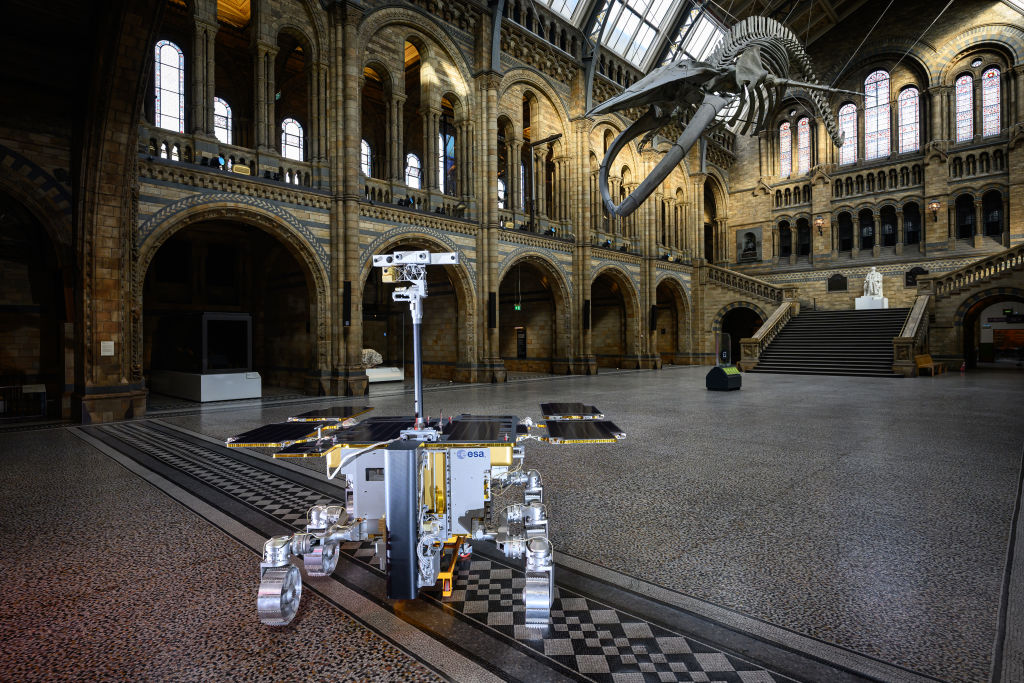Entertainment
Anglofuturism: A Vision of Britain’s Past and Its Future

The concept of Anglofuturism has emerged as a provocative ideology within Britain, blending nostalgia for the Victorian era with visions of advanced technology. This movement, which has gained traction among certain online communities and political figures, imagines a future rooted in a homogeneous British identity while simultaneously embracing high-tech advancements. As the idea gains momentum, it raises critical questions about the nation’s identity and its ability to move forward.
At the forefront of this discussion is writer Aris Roussinos, who in a 2022 essay for UnHerd, described Anglofuturism as a potential remedy for Britain’s perceived stagnation. He argued for a national renewal that draws upon the “best of the past.” Recently, during the “Now and England” conference, Robert Jenrick, a prominent figure within the Conservative Party, identified himself as an Anglofuturist, further legitimizing the movement within political circles.
Anglofuturism envisions a world where tradition and technology coexist harmoniously. Supporters often depict this future as one where a distinctly white British cultural identity is preserved. The aesthetic draws parallels to Afrofuturism, which seeks to empower historically marginalized communities by imagining alternative futures. In stark contrast, Anglofuturism appears to reflect a longing for a bygone era when Britain was at the height of its imperial power, often overlooking the colonial costs associated with that dominance.
The tension within Anglofuturism lies in its paradoxical nature. It grapples with the challenge of reconciling a past steeped in colonial glory with the present-day reality of a multicultural society. The movement seems to embody a collective melancholia, akin to the concept of hüzün described by writer Orhan Pamuk, which captures a shared grief following the decline of an empire. This sentiment permeates Anglofuturism, revealing a nostalgia that feels more like a burden than a vision for the future.
Despite its aspirations, Anglofuturism has been criticized for fostering a sense of self-pity rather than genuine progress. The desire to recreate a prosperous past can lead to a stagnation of ideas and initiatives. In the words of cultural theorist Svetlana Boym, this tendency towards “restorative nostalgia” manifests in a belief that the past can be restored to its former glory, often ignoring the profound changes that have occurred since.
The movement has attracted a diverse array of supporters, ranging from those expressing harmful nationalist sentiments to more benign enthusiasts who engage with its themes through creative mediums. However, critics caution against conflating these various factions, as doing so diminishes the complexity of the discussions surrounding identity and heritage.
Historically, Britain has grappled with its past, as seen during the Victorian era’s fascination with ruins and the romanticization of decay. This cultural tendency reflects a broader impulse to reclaim a sense of identity through nostalgia. The digital age has transformed this yearning into a new form of expression, with AI-generated imagery depicting idealized futures that echo past glories.
In the fictional narrative of Time Shelter by novelist Georgi Gospodinov, characters inhabit rooms that recreate different decades, illustrating a societal inclination to escape into the past. Anglofuturism, in essence, operates as a similar refuge, presenting a vision of the future that is more about replicating obsolete fantasies than innovating new possibilities.
The movement’s appeal may resonate with a segment of the population that feels disconnected from contemporary developments. The Conservative Party, described as a “gerontocracy,” often reflects the priorities of older voters and landowners, leading to a stasis in infrastructure development. This political context makes Anglofuturism’s nostalgic visions particularly attractive, offering a comforting narrative of a Britain that “once did great things.”
Yet, the contrast between the rhetoric of a “future made in Britain” and the reality of delayed infrastructure projects underscores a significant disconnect. The more society clings to its nostalgic ideals, the more it risks defining itself by what has been lost rather than what can be achieved. Anglofuturism illustrates the consequences of turning memory into mission, where the past is mythologized while the present remains unaddressed.
As the movement continues to evolve, it presents a challenge for Britain: how to balance the reverence for its history with the necessity of embracing a diverse future. Ultimately, Anglofuturism reveals a nation grappling with its identity, caught in a cycle of nostalgia that hinders its ability to forge ahead. The rockets and trains envisioned in this ideology may symbolize hope, but they also reflect a country that is hesitant to let go of its past. The trajectory of Anglofuturism remains uncertain, as it wrestles with the question of whether to rebuild or to move forward into uncharted territory.
-

 Entertainment3 months ago
Entertainment3 months agoAnn Ming Reflects on ITV’s ‘I Fought the Law’ Drama
-

 Entertainment4 months ago
Entertainment4 months agoKate Garraway Sells £2 Million Home Amid Financial Struggles
-

 Health2 months ago
Health2 months agoKatie Price Faces New Health Concerns After Cancer Symptoms Resurface
-

 Entertainment3 months ago
Entertainment3 months agoCoronation Street’s Carl Webster Faces Trouble with New Affairs
-

 Entertainment2 months ago
Entertainment2 months agoWhere is Tinder Swindler Simon Leviev? Latest Updates Revealed
-

 Entertainment4 months ago
Entertainment4 months agoKim Cattrall Posts Cryptic Message After HBO’s Sequel Cancellation
-

 Science4 weeks ago
Science4 weeks agoBrian Cox Addresses Claims of Alien Probe in 3I/ATLAS Discovery
-

 Entertainment4 months ago
Entertainment4 months agoMarkiplier Addresses AI Controversy During Livestream Response
-

 Entertainment2 months ago
Entertainment2 months agoOlivia Attwood Opens Up About Fallout with Former Best Friend
-

 Entertainment3 months ago
Entertainment3 months agoMasterChef Faces Turmoil as Tom Kerridge Withdraws from Hosting Role
-

 Entertainment4 months ago
Entertainment4 months agoSpeculation Surrounds Home and Away as Cast Departures Mount
-

 World2 months ago
World2 months agoCole Palmer’s Mysterious Message to Kobbie Mainoo Sparks Speculation





















